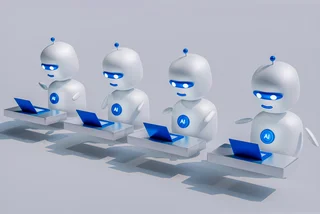As artificial intelligence (AI) advances in the Czech labor market, more jobs across various industries face automation, raising concerns about employment security. While Czechia continues to maintain the lowest unemployment rate in the EU, experts warn that AI is beginning to displace workers in certain fields.
According to a survey by consulting firm PwC, one in four business leaders in the country expects to reduce their workforce this year due to AI-driven automation. The impact is most visible in roles that involve repetitive tasks, but even skilled professions are not immune.
What’s most at risk?
One of the most affected fields is translation. AI-powered translators are increasingly being used for professional translations, including manuals, contracts, and legal documents. “People in this industry are seeing fewer orders at lower rates, forcing many to leave the field or retrain,” said Matěj Barták, editor at Plot Publishing House, told Czech media outlet Novinky.cz.
While literary translation remains largely untouched due to the complexity of creative writing, Barták believes that AI could soon dominate formulaic genres, such as young adult fiction and mass-market horror. “AI translators are improving rapidly, and some readers are more accepting of lower-quality work,” he added.
Are you worried that AI may take over your job in the next 10 years?
Česká spořitelna, one of the country’s largest banks, has already replaced a human translator with AI and now uses AI for training and providing feedback to call center operators. “We’ve replaced two hours of operator training with AI, though trainers have been reassigned as team leaders,” said bank spokesman Filip Hrubý.
Programming, often seen as an AI-proof profession, is also changing. “Ironically, AI is beginning to automate parts of software development, such as code generation, debugging, and application testing,” said Jiří Halbrštát, Director of Recruitment and Marketing at major staffing firm ManpowerGroup. However, developers proficient in AI tools may see productivity gains rather than job losses.
Are other industries under threat?
AI is also reshaping marketing, media, and finance. “More companies are using AI to generate text, create graphics, and edit videos,” Jiří Halbrštát, director of Recruitment and Marketing at ManpowerGroup, told Novinky. Even accounting, which has been gradually automating for years, is seeing a shift toward AI-powered data analysis and financial management.
A report by Goldman Sachs estimates that up to 300 million jobs worldwide could be affected by AI, as co-reported by the OECD, but it also notes potential job creation in emerging fields. Some experts warn of the systemic risks associated with widespread job displacement.
While AI threatens certain jobs, it also creates new opportunities for those who adapt. “The key question isn’t whether AI will take jobs—it’s who will be able to use AI to stay ahead,” Halbrštát concluded.












 Reading time: 2 minutes
Reading time: 2 minutes 























